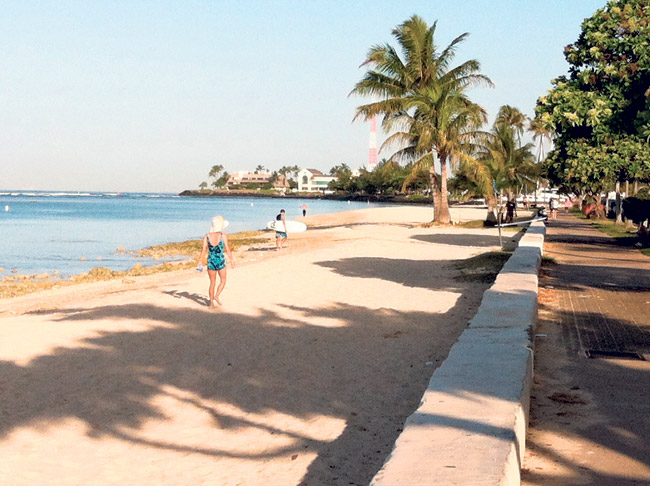Be Careful Where You Light Up
Let me start by saying I’m not a smoker and I have strong opinions about secondhand smoke exposure. But I also respect the right to choose.
In fact, when Hawaii’s statewide smoking ban went into effect in November 2006 and smoking became illegal in any private restaurant, bar, building, airport or public facility, I, like many, empathized with business owners who were against the comprehensive law. Some of those businesses initially reported significant negative impacts, but most found ways to make things work.
Oahu’s newest smoking ban also will be challenged, but this time the public will be less empathetic. Smoking at a restaurant or bar is one thing; smoking at a beach where families gather for a day in the sun is a much different picture.
City Councilman Stanley Chang introduced the bill, calling attention to the dangers of secondhand smoke and the problems of cigarette butts littering our beaches and endangering marine life. Mayor Kirk Caldwell signed it into law April 8.
Smoking is no longer legal on Kuhio Beach, Kapiolani Beach Park, Kapiolani Park Beach Center, Sandy Beach Park and the beach areas of Ala Moana Regional Park and Duke Kahanamoku Beach Park.
“Long overdue,” says Hiram Wong, who walks almost daily at Ala Moana Park with a group of friends. “I’m a former smoker, so I know how mean non-smokers can be (to smokers), but the cigarette butts left behind in the sand are disgusting.”
If you’re caught lighting up at one of these the beaches, it will cost you. Violators will be subject to fines up to $100 for the first offense, $200 for a second violation if you’re caught again in a year, and a whopping $500 for any additional violations.
“That should get their attention,” laughs Wong, who added, “But that’s only if the law is enforced!”
And that’s where there’s a slight snag. Although the ban takes effect immediately, for now, it can only be enforced at Ala Moana. The other six beaches are owned by the state, and in order to enforce a city ordinance in these areas, the City Council will have to make changes to the Revised Ordinances of Honolulu.
The delay in full enforcement means beach cleanups still may be necessary – and the need is great. In late March, more than 100 people participated in a cleanup at Kakaako Beach Park. In two hours, volunteers picked up 11,176 cigarette butts, which resulted in a $5,588 donation to the Surfrider Foundation.
While most smokers are responsible with their cigarette butts and dispose of them properly, cleanup efforts like the one at Kakaako Park are proof that there is still much work to do.
“What a lot of people don’t realize is that cigarette butts are actually plastic, and they have like 200 chemicals in them, and they are extremely toxic,” says Stuart Coleman of Surfrider Foundation. “So you have marine life that consumes them, and then you have kids on the beach who consume them.”
Councilman Ikaika Anderson wanted the ban apply to all city parks and beaches, but Chang and others said they wanted to see how an expanded ban worked first. The mayor has indicated that he would be open to supporting a ban at all city beaches and parks.
Will the new ban negatively affect our visitor industry as some opponents claim? Highly unlikely, but make no ifs, ands or butts about it – treating our beaches like they are big ashtrays most certainly would.






